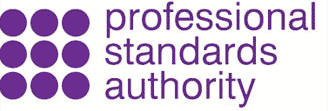www.childpsychotherapy.org.uk
We are full members of the Association of Child & Adolescent Psychotherapists (ACP) , the main professional body for psychoanalytic child and adolescent psychotherapists in the UK. Psychoanalytic psychotherapy is internationally recognised and the ACP also has members around the world.
ACP-registered child psychotherapists have completed an NHS child mental health-based training which lasts for at least four years. ACP members work with children, adolescents, parents and families, individually or in groups, with a range of complex psychological difficulties and disorders and have considerable experience of treating:
anxiety,
attachment problems,
abuse,
self-harm,
eating disorders,
depression,
trauma,
looked after and adopted children and young people,
parents and families.
They also provide consultation to professionals in education, social care and the voluntary sector.
The Register of the Association of Child Psychotherapists is independently regulated by the Professional Standards Authority.
https://btpp.space/
We are professionally associated with the Birmingham Trust for Psychoanalytic Psychotherapy (BTPP), a thriving centre for psychoanalytic learning in the West Midlands,
BTPP’s charitable activities and training arose out of a conviction that all children have a right to be able to access therapy and other essential services delivered by well-trained therapists and professionals. BTPP believes that this is true for all children and those who care for them, particularly so for the most disadvantaged and damaged children in the West Midlands.
BTPP also believes that central to delivering therapy and other services that meet children’s needs is that the professionals working with children can listen to and take in what children communicate about the reality of their external and internal lives. Only then can a truly empathic understanding of the position of the child be achieved and appropriate professional work or therapy be delivered to them.
This requires appropriate professional training and support and BTPP provides such a context in which professionals can learn, develop and be sustained.
BTPP believes that psychoanalytic training should be accessible to interested and able professionals and should not be financially prohibitive.
http://www.aimh.org.uk/
AIMH(UK), the Association for Infant Mental Health, which is the UK affiliate of the World Association of Infant Mental Health.
Its purpose is to:
- encourage an awareness that infancy is a sensitive period in the psychosocial development of individuals
- promote education, research and study of the effects of mental development during infancy on later normal and psycho pathological development; and to promote research and study of the mental health of parents, families and other caregivers of infants
- promote evidence-based practice through encouraging close links between clinical workers and researchers
- disseminate knowledge about the mental and emotional health of infants and young children through strategic discussions, workshops conferences and the AIMH(UK) website
- provide information and sometimes direct support, to those campaigning for recognition and resources to meet the mental health needs of young children and their families.
The Cambridge Centre for Attachment
The Cambridge Centre for Attachment (www.attachment.services) is based upon the work of its Directors, Dr Ben Grey and Juliet Kesteven, in partnership with associated colleagues.
It’s heart is a collaborative multidisciplinary network of professionals across the U.K., aiming to integrate the insights of attachment theory, research and assessment methods into their work with parents and children.
The Cambridge Centre for Attachment believes that all intervention with children and their families should be founded upon an attempt to fully understand their history and relationships, and that attachment theory offers both a nonjudgmental and illuminating way to achieve this.
Attachment Theory suggests that most human behaviour, even the most disordered, makes sense when the context in which it developed is made clear.
The approach of the Cambridge Centre for Attachment looks to integrate ongoing relevant research with evidence based practice, to the enrichment of both.
The Cambridge Centre for Attachment is also the home of training and further research in the Meaning of the Child Interview (MotC: www.meaningofthechild.org), an interview based assessment tool, based on attachment theory and designed to understand the nature of parent-child relationships.



